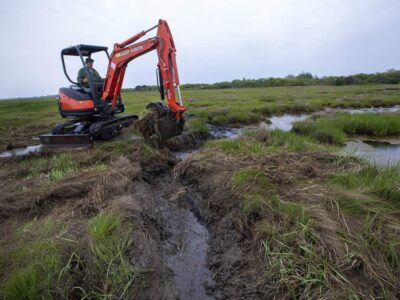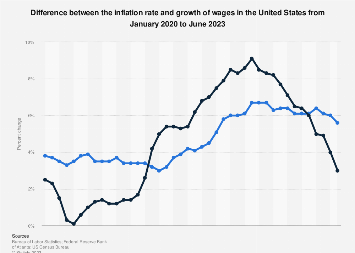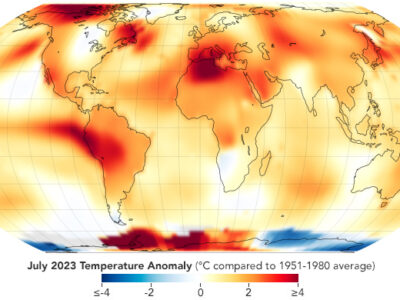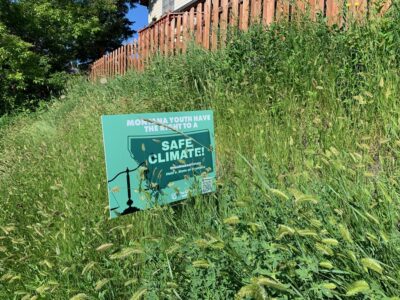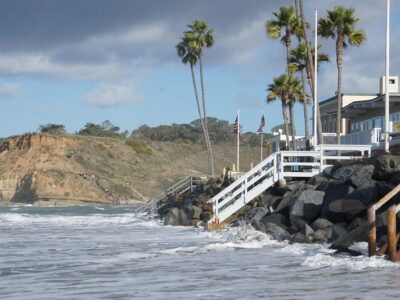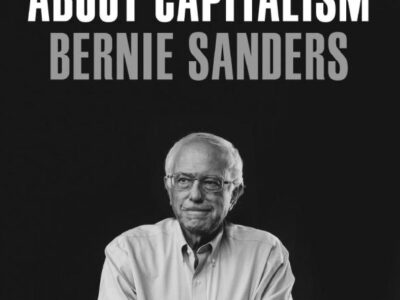Bowing to the Inevitable
The Supreme Court declared open season on the nation’s streams and wetlands. New regs are the result.
On August 25, EPA and the Army Corps of Engineers (“the agencies”) issued a joint rule, which modifies their previous rule on federal jurisdiction under the Clean Water Act in order to conform with the Supreme Court’s Sackett decision. Sackett was a deeply misguided and harmful ruling — but it is nevertheless the law. The agencies’ new rule attempts to sync their existing approach with the Sackett decision while doing no more damage than necessary to the env...
CONTINUE READINGCan we make a map for wastewater innovation?
...or even a guidebook?
During one phase of my misspent youth, I travelled by bicycle in search of adventure and insight. (Hang with me, this relates to environmental management, and I’ll get to that soon.) On one tour, I started in Vietnam, ending up in Pakistan a couple years later, having made some detours and added other means of transport to the mix. When I started riding, I had a guidebook. It was exciting to immerse in culture, language, and so forth, but the guidebook provided empowe...
CONTINUE READINGThe Contradictory Attacks on Biden’s Climate Programs
“Job Killing” or “Overheating the Economy” -- Which Is It?
“Job-killing regulations” is a longtime conservative meme. That attack has now been joined by the claim that major new spending for clean energy is overheating the economy. The inflation claim is new, prompted by the passage of the 2021 Infrastructure law and the 2022 IRA. And if they were both right, the two problems would be offsetting. In fact, we might need even stricter environmental regulations to help cool the economy and cut inflation. There’s never ...
CONTINUE READINGClimate Change is Finally Heating Up Politics – But Not in a Good Way
Pitting defence of our ‘way of life’ against climate policies is a recipe for division and inaction
Climate impacts are growing rapidly in this El Niño affected summer. Despite calls to declare a climate emergency, President Biden has responded only with new measures to help Americans cope with extreme heat. The measures announced include hazard alerts, improved prediction of heatwaves, funding for air-conditioning and cool centers for low income groups, and guidance on enhancing tree canopy cover. These all help preserve the American way of life in the face of th...
CONTINUE READINGAnother Supply Chain Issue
Less exotic than rare earths but also needed: energy law teachers.
To make the energy transition work, we’ll need a lot more energy lawyers. That means a lot of energy law profs to teach them — many more than we have today. Law schools are waking up to the need to hire in the area. So if you’re thinking of law teaching, it could be worthwhile to dive into this field. Let’s start with the first question: why do we need more energy lawyers? Our basic strategy for the next phase of climate policy is to electrify everything p...
CONTINUE READINGWill More States Add Green Amendments to Their Constitution?
UCLA's Mary Nichols weighs in on the groundbreaking youth climate decision in Montana and the "drumbeat of litigation" that could follow.
Eight simple words helped youth plaintiffs in Montana win their landmark climate lawsuit against the state: "the right to a clean and healthful environment." The 103-page decision by a state court judge wades through loads of testimony and evidence, but it all comes back to that simple constitutional guarantee. A handful of other states have similar language, sometimes referred to as "green amendments," in their constitutions. Our colleague Julia Stein told NPR that ...
CONTINUE READINGHow to Address Sea Level Risks in California Real Estate Transactions
A new UCLA report recommends policies to improve California’s real estate hazard disclosure laws to inform potential buyers of serious sea level rise risks.
It’s an increasingly common sight on California’s coast: beach houses being swallowed by the rising sea. The threat of flooding and erosion is increasing throughout the United States as a warming atmosphere makes precipitation events more extreme and contributes to sea level rise. In fact, the U.S. coastline is projected to see an average of 10 to 12 inches of sea level rise between 2020 and 2050, which is equal to the amount measured over the last 100 years. De...
CONTINUE READINGIncome-Based Electric Bills: Fact and Fiction
California is in the process of making income-graduated fixed rates a part of ratepayers’ electric bills. This is the first post in a series that follows that proceeding.
Under new legislation, California is moving to a novel system that includes income-based fixed charges for electricity. Some critics contend that this is a giveaway to incumbent utilities. It’s not. Others have implied that the charges reflect new costs to ratepayers on top of existing rates. This is also not accurate. There are, however, important questions regarding how the new rate structure will be designed and implemented. In a series of posts, I’ll be fo...
CONTINUE READINGIs Capitalism to Blame?
Some people think we need to abolish capitalism to save the environment.
Bernie Sanders has a book called It’s OK to be Angry at Capitalism. There are certainly a lot of people across the political spectrum who feel that way. Capitalism is blamed for environmental destruction by many of the more radical segments of the Left. That’s not too surprising given the historic connection between the more radical Left and various forms of socialism. What may be more surprising is the number of people on the far Right who apparently have the sa...
CONTINUE READINGClimate Change Got 4 Minutes in the GOP Debate
Ron DeSantis is right: Stop asking candidates if they “believe in climate change” and ask them what they will do so we learn about their environmental deregulation agenda.
The topic of climate change got about 4 minutes of airtime during the first half of the first presidential primary debate held this week by Fox News. That’s actually a pleasant surprise when you think about it: human-caused global warming came up before Donald Trump’s indictments. In case you missed it, the full transcript of the climate change question is posted below, or you can watch it here at 38:00 min into the debate. Fittingly, the topic was raised by...
CONTINUE READING



